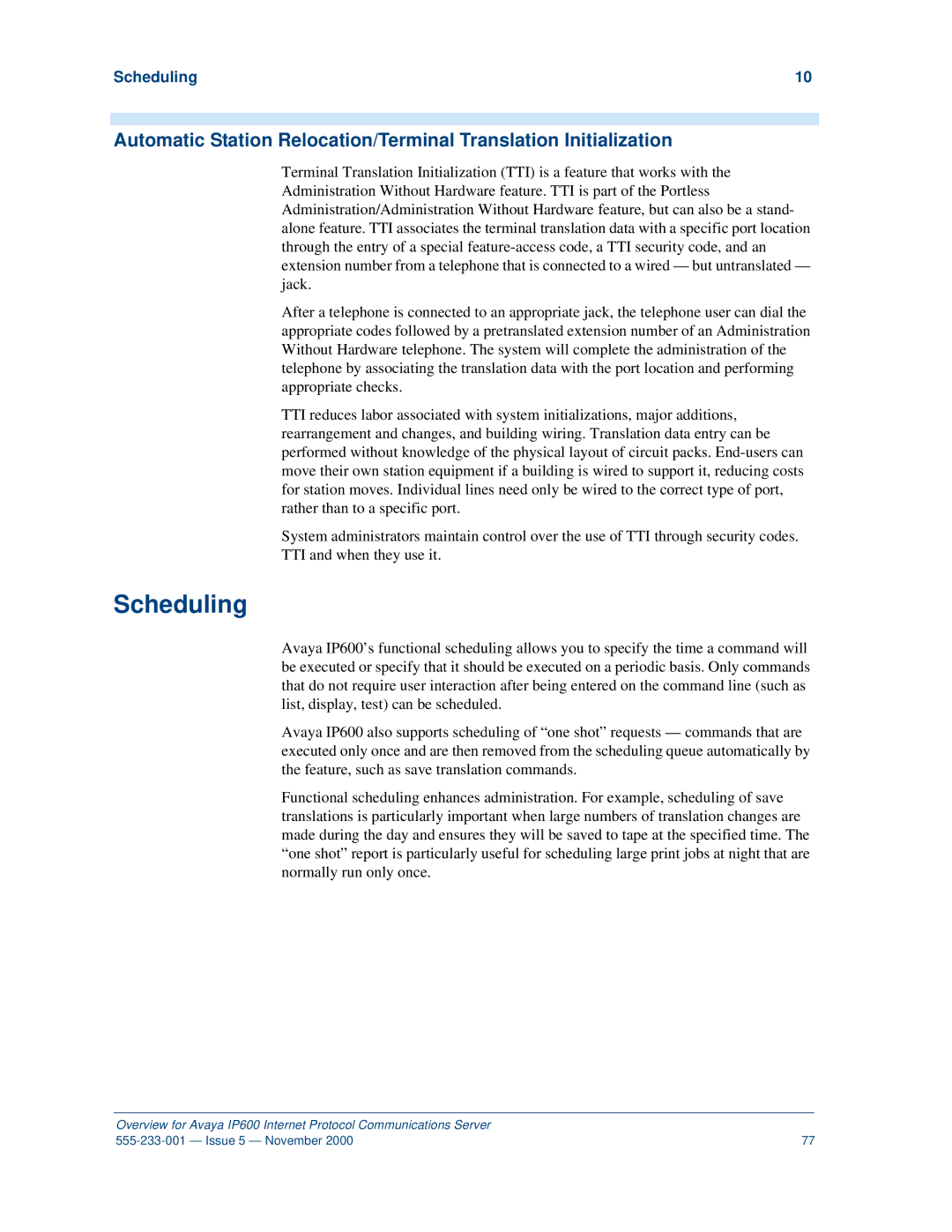
Scheduling | 10 |
Automatic Station Relocation/Terminal Translation Initialization
Terminal Translation Initialization (TTI) is a feature that works with the Administration Without Hardware feature. TTI is part of the Portless Administration/Administration Without Hardware feature, but can also be a stand- alone feature. TTI associates the terminal translation data with a specific port location through the entry of a special
After a telephone is connected to an appropriate jack, the telephone user can dial the appropriate codes followed by a pretranslated extension number of an Administration Without Hardware telephone. The system will complete the administration of the telephone by associating the translation data with the port location and performing appropriate checks.
TTI reduces labor associated with system initializations, major additions, rearrangement and changes, and building wiring. Translation data entry can be performed without knowledge of the physical layout of circuit packs.
System administrators maintain control over the use of TTI through security codes.
TTI and when they use it.
Scheduling
Avaya IP600’s functional scheduling allows you to specify the time a command will be executed or specify that it should be executed on a periodic basis. Only commands that do not require user interaction after being entered on the command line (such as list, display, test) can be scheduled.
Avaya IP600 also supports scheduling of “one shot” requests — commands that are executed only once and are then removed from the scheduling queue automatically by the feature, such as save translation commands.
Functional scheduling enhances administration. For example, scheduling of save translations is particularly important when large numbers of translation changes are made during the day and ensures they will be saved to tape at the specified time. The “one shot” report is particularly useful for scheduling large print jobs at night that are normally run only once.
Overview for Avaya IP600 Internet Protocol Communications Server |
|
77 |
